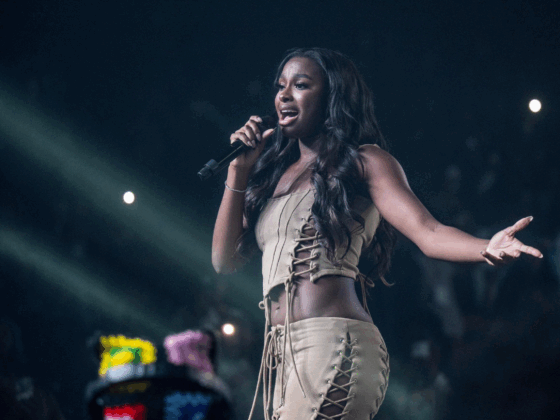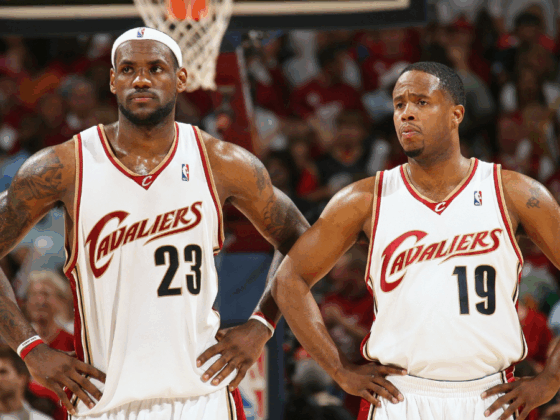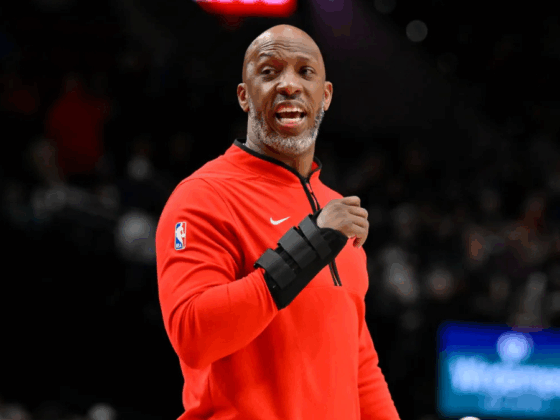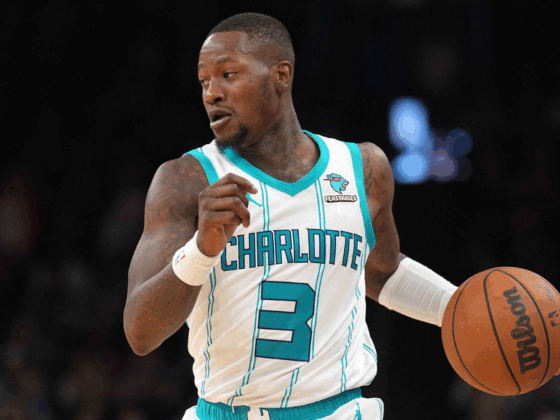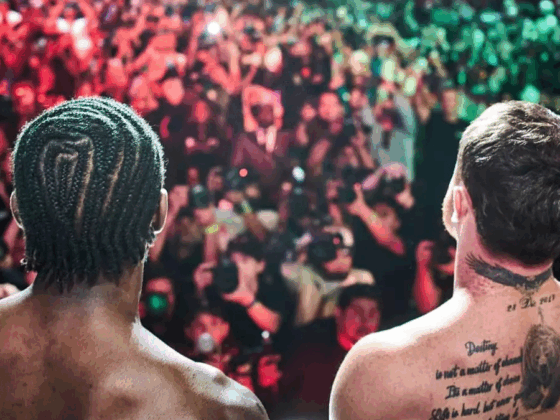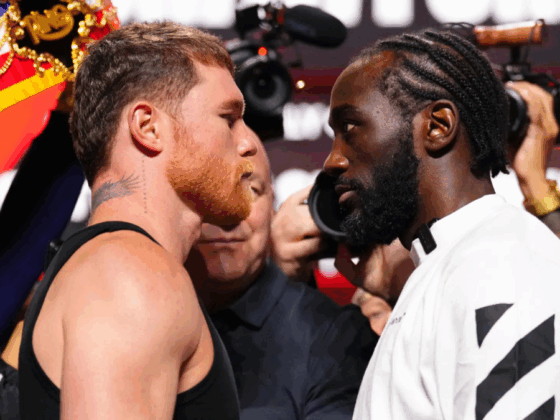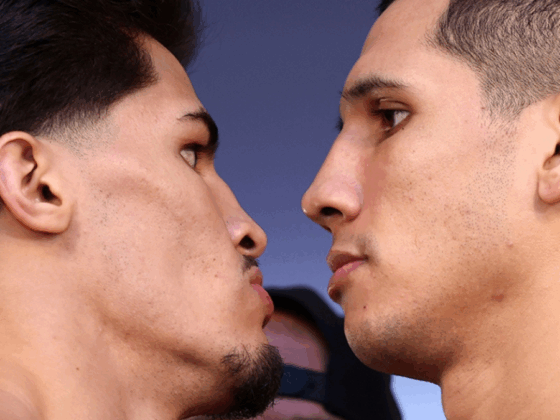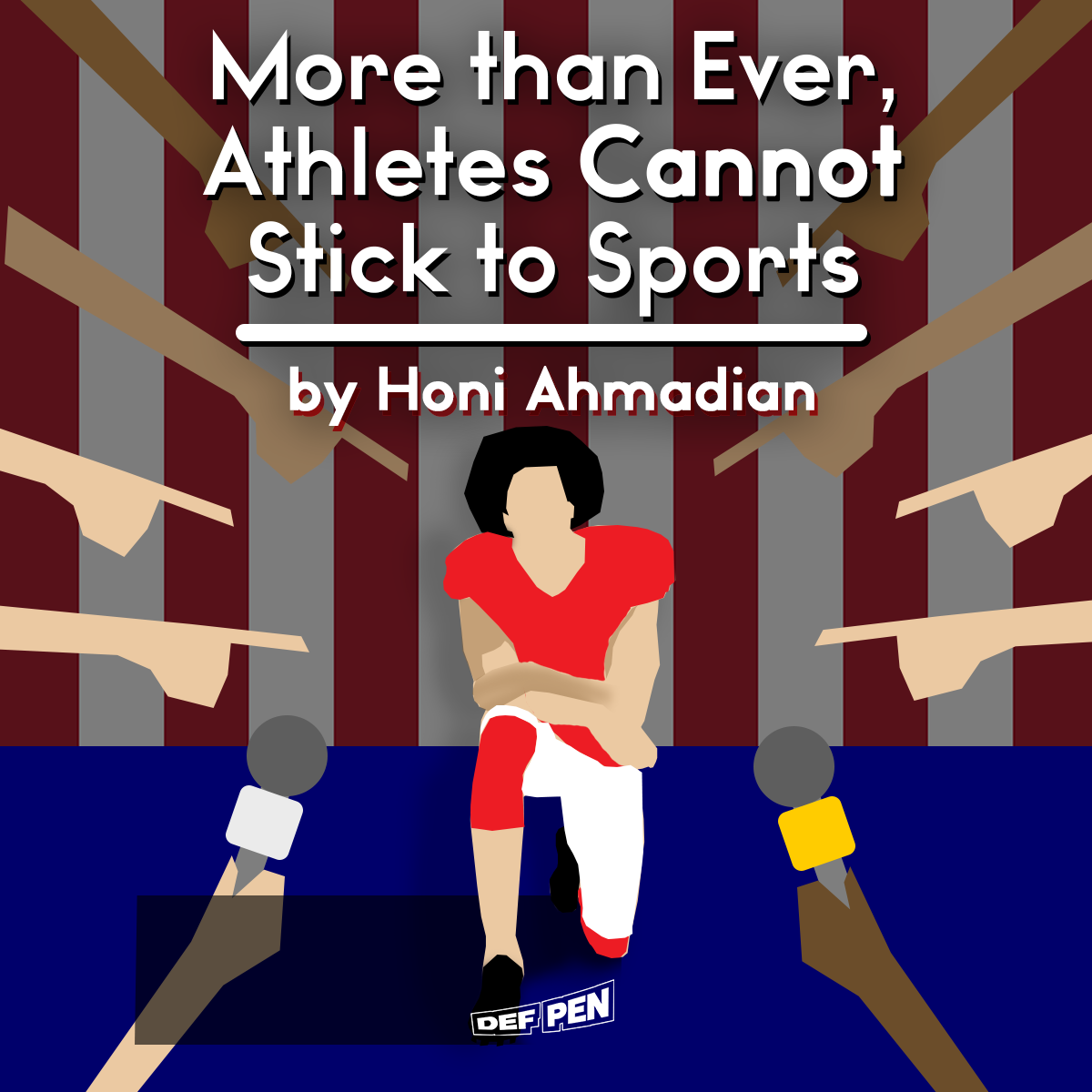
The United States of America is known as a place of hope and opportunity, but in reality, it has not been that for every person. Tensions are rising every day, most centered around the topic of race. Movements like Black Lives Matter have gained steam after numerous counts of police officers shooting and killing unarmed black people among other systemically racist issues in society. Recent events have shown the real threat of white supremacy, most notably when a faction marched in Charlottesville with Nazi, Confederate and Ku Klux Klan symbols and robes, an event that led to violence that killed one counter-protester.
Sports are often an escape from the real world, the world of politics and violence. Many people across the world turn to sports, or other forms of entertainment, as a way to shield themselves from the volatility around them.
But sports also create an avenue for inspiration and information. There are few platforms larger than that of a professional athlete, and when used correctly, that platform can be a harbinger of change.
Over the past year, we have seen that firsthand. Athletes have become more vocal in calling for changes in politics, society and institutional problems like racism. No athlete did this with more volition and under more duress than Colin Kaepernick.
The former San Francisco 49ers quarterback created a months-long national storyline last summer when he began sitting – and eventually kneeling – during the national anthem before a preseason game. Kaepernick’s protest lasted the entire season as he became the subject of much criticism.
Throughout the process, Kap became well-versed in explaining his protest, frequently mentioning the oppression of people of color in the country, saying at the time that he could not support the flag and anthem of a country that stood idly as black men and women were shot by police officers. That’s not to mention the numerous counts of charity, as Kaepernick has donated his own time and money to organizations helping those in need.
Kap’s protest predictably did not go without criticism, as those opposed to any sign that the United States may not be perfect accused him of being a traitor, disrespecting the troops and wanting to bring attention to himself and thereby being a distraction for his team. And Kap did not go unscathed; the free-agent quarterback has not yet found a home despite numerous objectively less talented QB’s signing new contracts this summer.
But Kaepernick was right, and while his protest has thus far been a sacrifice of his career, it has not gone unnoticed or unappreciated.

While it was not the first time an athlete has spoken about societal issues, Kap’s protest was the first snowball in an increasing avalanche of greater awareness by the nation’s most prominent athletes. Since its inception, numerous other athletes have joined in the protest. Prominent NFL players like Malcolm Jenkins, Michael Bennett and Marshawn Lynch, among many others, have sat or raised a fist during the playing of the anthem. NBA players took a different approach last season, as several teams locked arms in a show of unity before games. The biggest stars in the game, though, have been vocal in interviews and on social media about issues plaguing the country.
During the 2017 NFL Preseason, when Bennett made the decision to sit, he had strong words about what Kaepernick’s protest meant and the reasons behind his ongoing unemployment:
“Of course I think Kaepernick’s being blackballed,” Bennett said.
“Obviously, all the stuff to do with the issues, I think nobody likes race and politics in sports,” Bennett said. “I think it’s one of the things that nobody really wants to talk about. For him to bring up race and politics in sports, I think it struck a lot of people in the wrong way. You watch the people that really watch football, it’s middle America and the people that buy tickets to the game aren’t really African-American people, and for him to bring that into that crowd was one thing that people felt like shouldn’t have been there.”
The next logical step is, of course, getting more support for the movement from those who have previously been silent, especially those less affected by the issues that Kaepernick and others have protested.
White athletes have been largely quiet while several black athletes have put their careers on the line. Megan Rapinoe was the first to join in the demonstrations, doing so almost immediately after Kaepernick’s initial decision and doing so while wearing her country’s colors on her chest. Rapinoe, a member of the LGBT community and a star on the US Women’s National Team, was reprimanded for kneeling during the anthem, but her protest spoke volumes not only as an ally for people of color seeking social justice, but also the underrepresented community for which she has always been a vocal advocate.

After Rapinoe, the support from white athletes dwindled. Most chose to speak about having respect for the military, the flag and anthem, or to avoid politics altogether rather than get involved in a cause that should have ubiquitous support.
Slowly but surely, however, that tide may be changing. Chris Long made noise by simply putting an arm around Malcolm Jenkins as the latter raised a fist during the national anthem before a recent preseason game. Justin Britt did the same with Bennett as he sat on the bench. Finally, a large group of Browns players showed solidarity in kneeling and praying during the anthem before a preseason game. Among them was white tight end Seth DeValve. Punter Britton Colquitt did not kneel but did stand nearby with his hand on a teammate’s shoulder. White players joining this movement despite not being directly affected by the oppression being protested was a major step in furthering the movement with more and more support from high-profile individuals.
(There is a discussion to be had about the reception that Long, Britt and DeValve received relative to the ones that Kaepernick, Jenkins, Bennett, Rapinoe and many more have received. While their addition to the cause is invaluable, it is important to recognize that white males are not sacrificing any more than their black and female counterparts and should not be celebrated at the disproportionate level that it often seems like they get. Nevertheless, that is an entirely different discussion that would require a lot more time and nuance to be accurately portrayed. For now, it’s simply a promising sign that Kaepernick’s initial movement is gaining steam and becoming a universal message).
After his involvement in the protest, Long spoke about the importance of more white athletes joining in this protest and supporting their teammates and people of color across the country:
“I’ve heard a lot of people say you need white athletes to get involved in the anthem protests,” Long said. “I’ve said before I’ll never kneel for an anthem, because the flag means something different for everybody in this country, but I support my peers. And if you don’t see why you need allies for people that are fighting for equality right now, I don’t think you’ll ever see it. So my thing is, Malcolm is a leader, and I’m here to show support as a white athlete.”
“This isn’t political. That’s the thing. Everybody is trying to turn this political. This isn’t a political issue. This is right or wrong,” Long said, via CSN Philly. “I believe you’re on one side or the other. For me, being from Charlottesville, no one wants to see you sit idly by and watch that stuff happen and not say anything.”
“I was inspired by a lot of the allies that were there to stand up against hate in my hometown, and I wasn’t able to be there to protest or to stand up against hate. People like Heather Heyer gave their lives for that, and I was inspired by that,” Long said.
Long later tweeted out the following from his personal account:
America will only be as great as our standards 4 it. If you love something, improve it. Seek progress as passionately as we’ve received this pic.twitter.com/5GKcuvdb0P
— Chris Long (@JOEL9ONE) August 20, 2017
And btw I don’t presume to be a star in our game or the fight for equality but there’s room for everyone in it. Love you twitter! Goodnight!
— Chris Long (@JOEL9ONE) August 20, 2017
Even Packers quarterback Aaron Rodgers, one of the biggest stars in the game and a notoriously cautious speaker, took a stand in an interview with ESPN’s Mina Kimes, saying unequivocally that Kaepernick would be on a roster if not for his protest. It was a momentous occasion for a white superstar athlete to take a stand despite the criticism that he will likely face.
Rodgers also spoke about “their fight” for racial equality when talking about his teammates and their discussions about this issue. While Rodgers’ desire to absorb such discussions is commendable, his word choice signifies a much bigger problem in the actual fight. Even outside of sports, white people who do understand the lack of racial equality see it as a fight for people of color, not a fight for everyone who wishes to see that equality become widespread.
When Broncos linebacker Brandon Marshall joined his college teammate Kaepernick in protesting, he gave the most justifiable answer to explain his reasoning (beyond the personally experienced racial profiling that he and many other athletes have spoken about):
“I’m not against the police. I’m not against the military. I’m not against America. I’m against social injustice. This movement is something special. People are going to bash me on social media but at the end of the day, I’m going to go home and sleep peacefully knowing what I did was right. I will not lose any sleep.”
“So many people have trouble understanding and empathizing,” Marshall says. “It’s hate and it’s exactly what we talk about. People celebrating a possible concussion are proving my point.”

Marshall’s claims are why Colin Kaepernick knelt and why countless high school, college and professional athletes followed. They’re why LeBron James, Carmelo Anthony, Dwyane Wade and Chris Paul stood on the stage at the ESPYs to denounce what was then the latest run of police officers shooting unarmed black men. They’re why Michael Bennett sat and Malcolm Jenkins raised a fist. They’re why Chris Long and Justin Britt showed support. They’re why Megan Rapinoe became the first white athlete to kneel during the national anthem. They’re why Gregg Popovich and Steve Kerr have taken every opportunity to denounce the president and why David Fizdale is putting pressure on the city of Memphis to remove Confederate statues. They’re why numerous athletes are finding it in their hearts to give interviews or tweet about Charlottesville, the Muslim Ban, the Transgender Ban and so many of the other horrendous, oppressive and insensitive events happening in the world around us.
I may have a closer bond to this story than many others. I went to the same college as Kaepernick and Marshall, the same one that saw several of its football players come together to raise their fists during the one national anthem that they were on the field for last season. It also happens to be the same school, the University of Nevada, Reno, that was home to one of the many white supremacists in the frontlines of the Charlottesville rally.
I am also a brown man from the Middle East. I always fully shave before going to an airport. I am still nervous through the TSA checks. I still try to avoid talking about my birthplace and religion to strangers for fear of conflict. And yet, I’ve been privileged enough to not have to worry about being shot by the police during a routine traffic stop because of the color of my skin. That does not make me any less receptive to the issues that plague African Americans, women and members of the LGBT community, among others in the United States, in the same way that it does not make a rich, black athlete less receptive to the additional issues surrounding black Americans living in poverty or the middle class.
You don’t have to agree with everything Colin Kaepernick did to get his message through but you have to admit that thus far, his actions have been a force for good. Kap followed up his protest by spending his own money to donate to numerous charities that help fight the oppression of underrepresented minorities. Kaepernick, through both words and actions, has beckoned a change in the political landscape of sports, one that has led to positive engagement between high-profile athletes and fans. Kaepernick almost certainly wants to continue playing football at a high level, but if his career was sacrificed in order to bring more light onto a sore subject that has been swept under the rug by the NFL, NBA and other professional sports leagues, then it was a worthwhile sacrifice, and I’m sure he would be the first to admit it.
We still have a long way to go before all of this leads to any significant change. Systemic racism, sexism, homophobia and transphobia are issues that have been integrated into the very fabric of “the best country in the world” since its inception – ideals that did not push half of the country away from voting for the current president. That Kaepernick cannot find a job as a result of owners opting to sign lesser players because they’re either afraid of backlash or angry at his protest is a further perfect example of the long road ahead to find support throughout the country.
But there are certain people who have the ability to push the first waves of change. Athletes are among those with the highest platform in the United States, with millions of adoring fans eagerly listening to every word. It’s not easy; one has lost a job, many have lost endorsements, and all have lost some fans. But it’s crucial and it works.
When LeBron James tweets about Charlottesville and the president’s speech denouncing the “many sides” of the issue, millions of social media followers see and understand. When Michael Bennett speaks of the need for more white people to join the cause, Chris Long, Justin Britt and Seth DeValve listen and take varying degrees of action. When Colin Kaepernick kneels and speaks about injustice, oppression and social values, many try to turn a deaf ear, to cry out about politics in sports and diminish his words, but the message finds a way through and his words change the sport forever.
Kaepernick being blackballed should not dissuade other athletes from following his lead; rather, his reach and message should inspire more to follow him in speaking out. It’s already starting, but now, more than ever before, athletes should not and cannot stick to sports.
“I am not looking for approval. I have to stand up for people that are oppressed. … If they take football away, my endorsements from me, I know that I stood up for what is right.” – Colin Kaepernick
